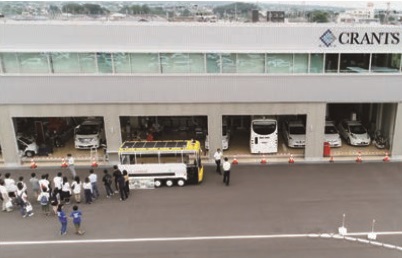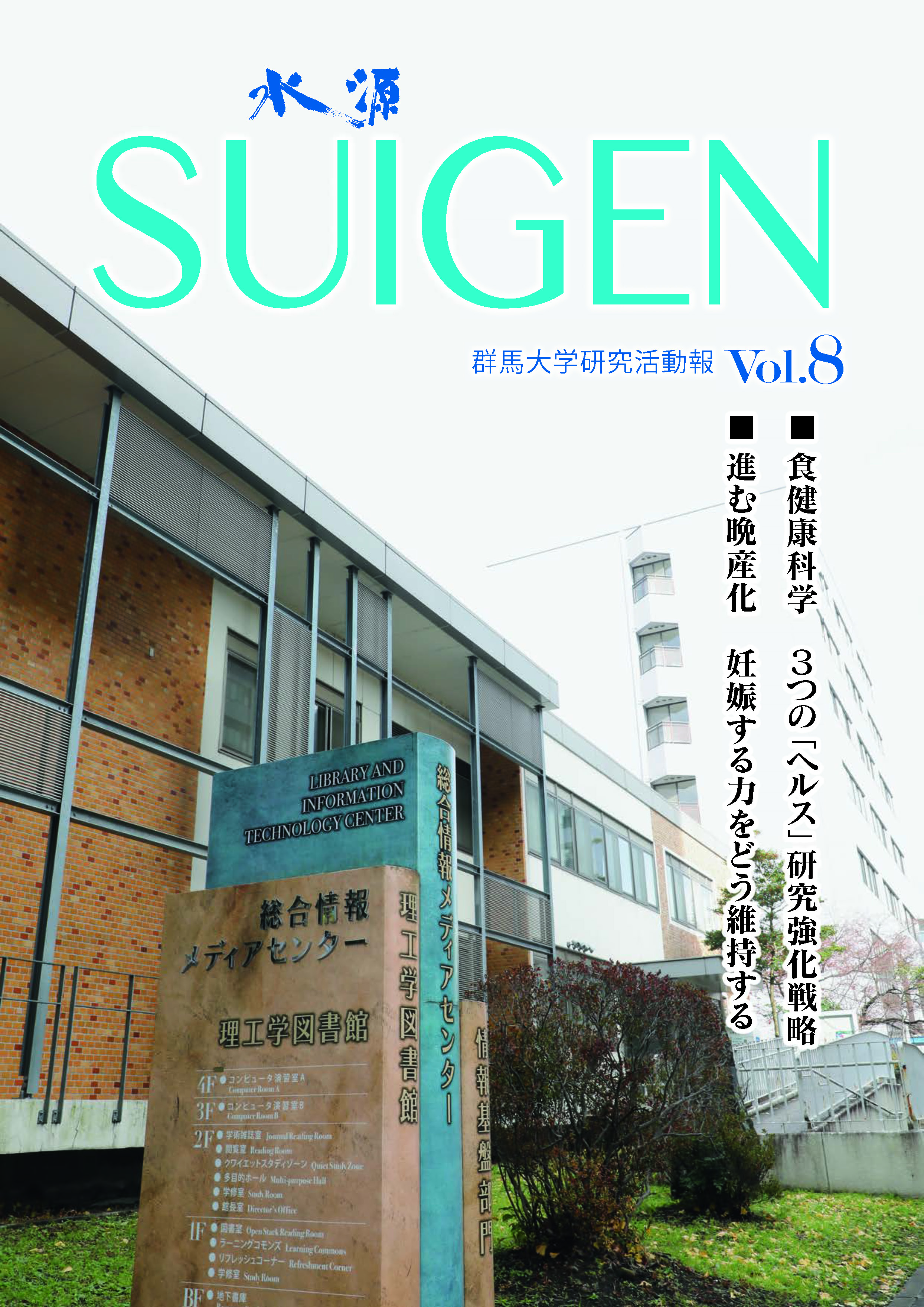

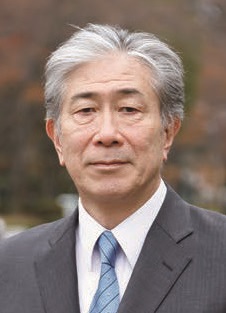 Research Enhancement Strategy for Three Domains of "Health"
Research Enhancement Strategy for Three Domains of "Health" Gunma University positions "Food and Health
Science" as one of the research and education fields to be
strengthened in the medium to long term. As a university with an
affiliated hospital, Gunma University has accumulated experience
in clinical practice and research in medicine and life science. In
the strategy to enhance research capabilities in "Food and Health
Science," Gunma University not only pursues a healthy lifestyle
but also maintains and enhances the environment and society
related to food production, distribution and consumption. The
university also aims to reinforce the function of cultivating
highly skilled professionals in this field. Through these efforts,
Gunma University aims to play a role as a hub of knowledge in the
region, contributing to the achievement of Sustainable Development
Goals (SDGs).
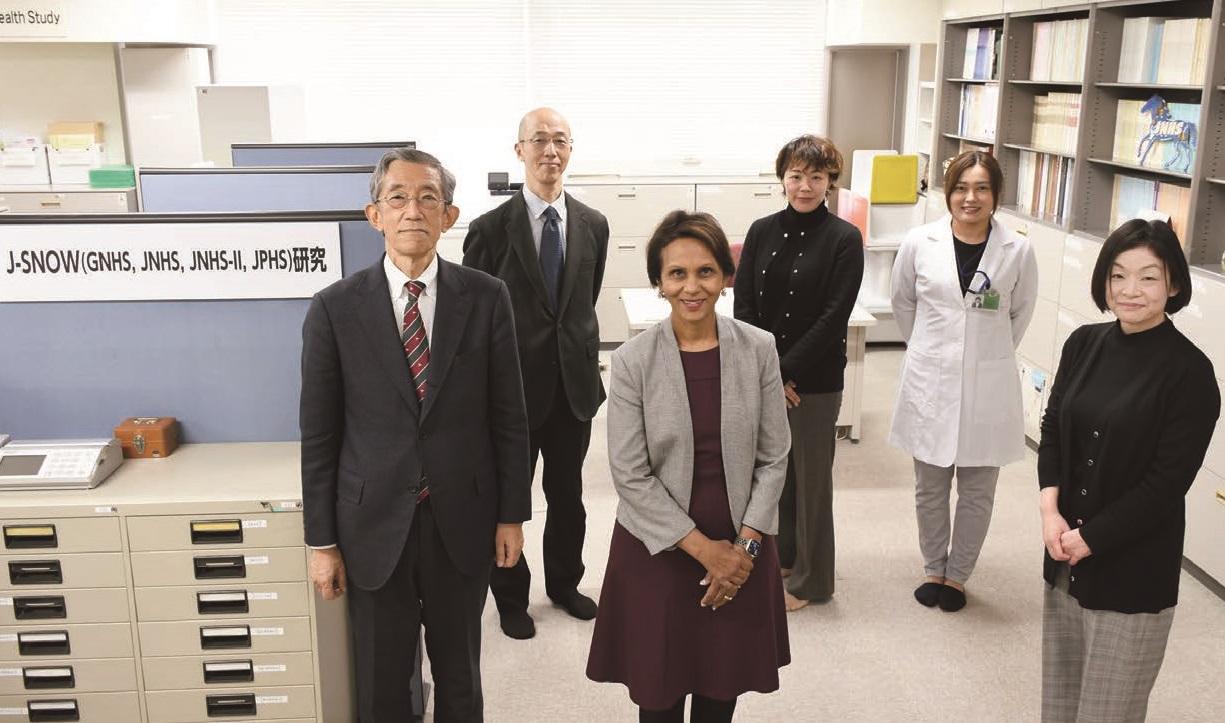 How to Maintain the Ability to Conceive Amid the Trend of
Delayed Childbirth
How to Maintain the Ability to Conceive Amid the Trend of
Delayed Childbirth The increasing number of women is facing
infertility issues due to delayed childbirth. Maintaining the
ability to conceive health pregnancies until the "late stage of
female reproductive maturity", typically between 37 and 45 years
old, is a challenge. The Gunma University team is exploring
solutions to this challenge through a large-scale women's cohort
study. Professor Hayashi who has a global authority in this
research filed has initiated and led this study.
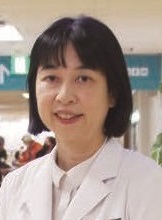 To
View Holistically As a Specialized Field "General Medicine"
To
View Holistically As a Specialized Field "General Medicine" With the progress of medical science,
specialization has advanced, leading to the division of medical
departments based on organs and diseases. At Gunma University
Hospital, even within the category of "Internal Medicine," there
are seven specialized departments: Cardiovascular Medicine,
Respiratory Medicine, Gastroenterology and Hepatology,
Endocrinology and Diabetes, Nephrology and Rheumatology,
Hematology, and Neurology. Similarly, in the field of general
surgery, there are seven specialized departments based on organs.
In total, there are 29 medical departments, and "General Medicine"
is one of them. Amidst increasing specialization and subdivision,
there is a growing demand for comprehensive medical care that
captures patients holistically without limiting treatment to
specific organs or diseases. Addressing this need is the field of
"General Medicine". General medicine requires a broad and rich
knowledge of medicine and the skills to accurately assess physical
conditions. In this context, Department of General Practice
Medicine plays a complementary role. Leading both departments
since November 2021 is Professor Kowase, the first female
professor in the Graduate School of Medicine.
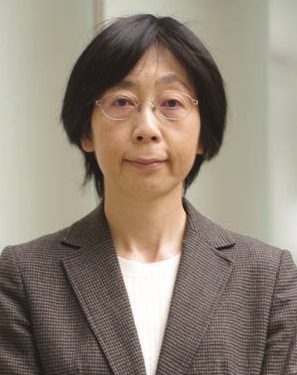 A
Comprehensive Practitioner Incorporating Kampo Medicine in
Medical Care
A
Comprehensive Practitioner Incorporating Kampo Medicine in
Medical Care Associate Professor Sato is a supervisory
physician in the field of "General Practice Medicine," responsible
for clinical work in the "General Medicine" at the University
Hospital. Additionally, she is a specialist in Oriental Medicine
(Kampo) and oversees "Japanese and Chinese Medicine," including
the establishment of a "Cancer Kampo Support Clinic." She
emphasizes that "Oriental Medicine complements comprehensive
healthcare." Furthermore, she is actively involved in the
education of medical students in the field of Kampo medicine
through practical training.

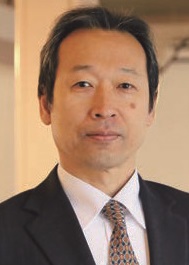 Development
of a Multi-Egg Weigher for Measuring the Mass of in Vitro
Fertilized Embryos
Development
of a Multi-Egg Weigher for Measuring the Mass of in Vitro
Fertilized Embryos Professor Hayato Sone has been accumulating
achievements in the research and development of sensors that use
ultrafine measurement and processing techniques in the nanometer
rage to detect minute biomaterials conveniently and with high
sensitivity. Currently, he is working on a device to
quantitatively measure the mass of in vitro fertilized eggs, which
is a pioneering field. If successful, it is expected to contribute
to the improvement of success rates in infertility treatment.
 Development
of a Highly Sensitive and Rapid Detection System for Trace
Amounts of Biomolecules
Development
of a Highly Sensitive and Rapid Detection System for Trace
Amounts of Biomolecules Amid the global challenge of controlling the
spread of the novel coronavirus, there is a strong demand for
testing methods that provide higher accuracy than antigen antibody
tests and shorter turnaround times than PCR tests. Assistant
Professor Zhang is engaged in the research and development of
biosensors that can rapidly and sensitively detect trace amounts
of biomaterials in specimens. Utilizing nano-fabrication
techniques, she creates silicon "nano wires" and collaborates with
computational science to optimize the sensor's structure,
electrical properties, and surface conditions. The goal is to
detect specific substances efficiently and sensitively. In the
future, the aim is to develop a measurement system capable of
simultaneously detecting multiple biomaterials with a single
sample solution collected in medical settings.
Gunma University's Medical Safety Education
Facility has been recognized by the Minister of Education,
Culture, Sports, Science, and Technology as an "Educational
Collaboration Utilization Hub," serving as a Faculty Development
(FD) activity hub for university faculty members nationwide
involved in training professionals in various fields such as
medical care, health, caregiving, welfare, and education. With
this designation, Gunma University can expand its excellent
educational content and methods developed in the field of health
care to education in various other professions, further enhancing
its capabilities. The recognition of this hub allows Gunma
University to collaborate with other universities, enabling the
development of diverse and advanced education across the entire
spectrum of university education. It's worth noting that the
Educational Collaboration Utilization Hub for Medical Safety
Education Methods is the only one of its kind in Japan. This
recognition is a result of Gunma University's concerted efforts by
faculty members to contribute to medical safety reform. The
university's Institute for Molecular and Cellular Regulation has
been recognized as a collaborative utilization and research hub
for "research" since the 2010 fiscal year. By combining these hubs
for "education" and "research," Gunma University will further
enrich its educational and research activities.

Next-Generation Mobility Open Innovation
Council
Gunma University established the Center for
Research on Adoption of NextGen Transportation Systems (CRANTS) in
December 2016, with a focus on researching the next generation of
mobility in society. Based on their research, they aim to
demonstrate and promote the adoption of new transportation
systems. As part of its commitment to one of its research themes,
the societal introduction of fully automated vehicle systems,
CRANTS created the Next Generation Mobility Open Innovation
Council in May 2017 as a platform for collaboration between
academia, industry and the local community. Various companies from
industries such as automotive, parts manufacturing, finance, and
insurance are actively participating. The council organizes
research meetings, test rides of automated vehicles, facility
tours, and other events. The annual general meeting serves as a
forum to review the results of CRANTS' research and
demonstrations, as well as the initiatives of collaborating
companies and local authorities. These meetings and tours
consistently attract many participants, fostering lively
discussions. While the initiative is praised for keeping up with
trends in advanced technological research, there are also calls
for it to serve as an opportunity where the needs and concerns of
transportation operators, residents, and future users can be
considered.
